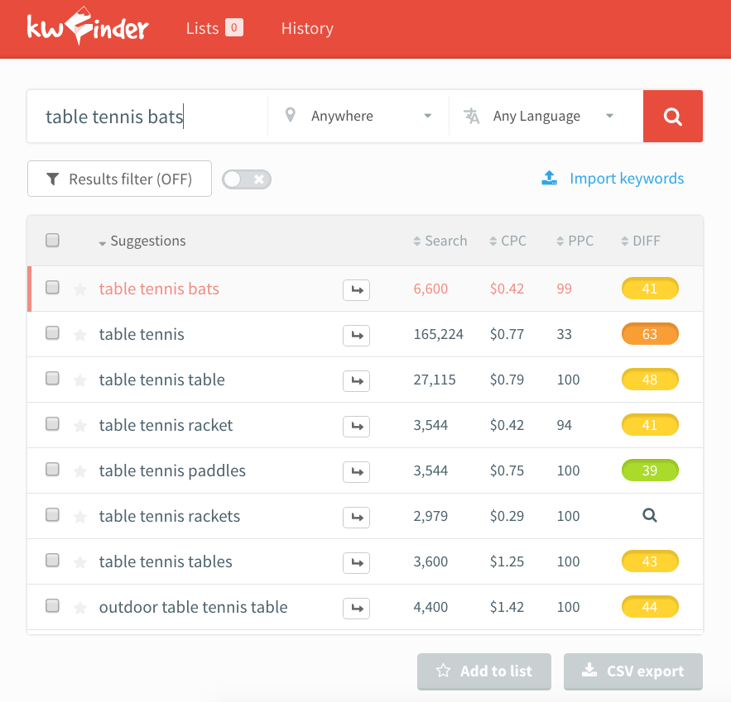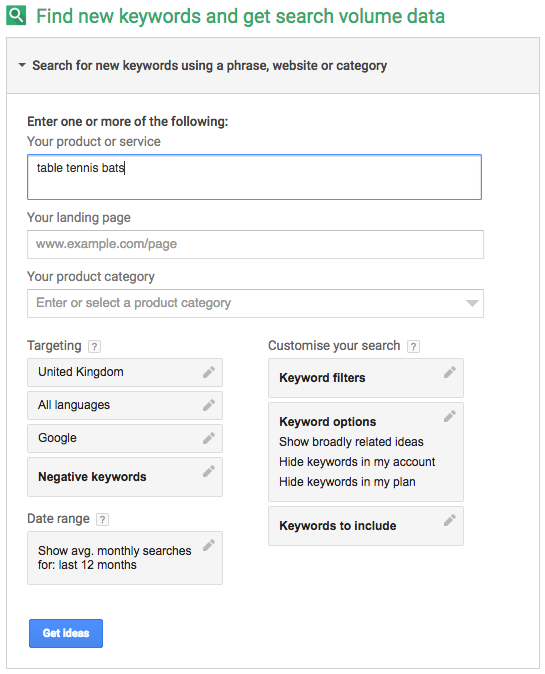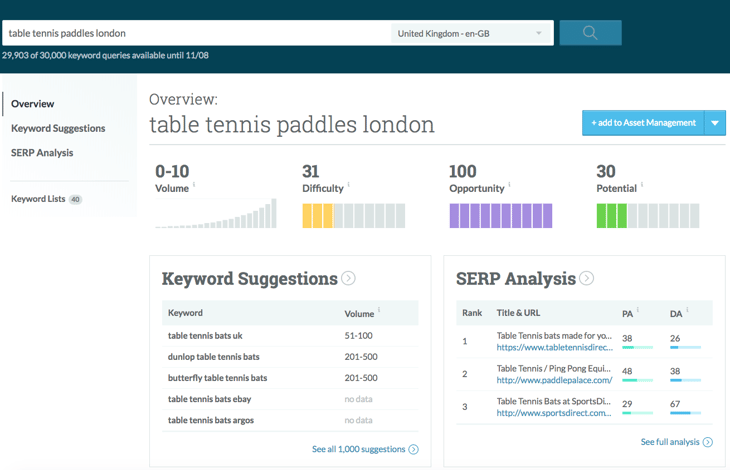Conducting keyword research for a niche market can prove difficult, but deciding what to optimise your website and content around is vital for the success of your SEO and marketing strategy.
Let’s say your company sells table tennis paddles and has a store based in London. One of the first things you need to decide on is what to optimise your website and content around in order to receive traffic, and also the right kind of traffic, to your website.
Keyword research requires tools to get useful insights and data to base your decisions on. Estimated guess work can be useful, but to understand your whole potential target market it is best to use some of the great tools that are available on the web.
Here are four tools and techniques to help you on your way:
KW Finder
KW Finder is great for finding long tail keywords with low competition. You can search for a keyword (the free version only allows you to search twice every 24 hours, so chose wisely) and filter by metrics like location and number of keywords.
You can also export your results via CSV and combine the data with insights gained from other tools within one spreadsheet to really evaluate your keyword research.
Google Keyword Planner
Google Keyword Planner is one of the best keyword tools for conducting long tail keyword research, but there is a bit of controversy over how accurate the data is. Nevertheless, it is an awesome tool.
Using Keyword Planner you can find new keywords by targeting specific regions and languages, while you can also filter out things like negative keywords and dates.

Moz Keyword Explorer
Moz’s Keyword Explorer is a fairly new tool that prides itself on having the most accurate search volume data around. It gives you great metrics to base your campaign on, and you can construct lists and evaluate metrics like:
- Volume - the monthly search volume.
- Difficulty - a score from 0-100 that estimates the difficulty of ranking above the current competitors on the first page of search results.
- Opportunity - a score from 0-100 that estimates the relative click-through-rate of organic web results for the chosen keyword. If other SERP features like ads and local listings also appear the score is lower.
- Potential - a score that combines the other metrics to show you potential sweet spots, for example keywords with high search volumes and low difficulty scores.

Site search using Quora (site:quora.com ‘keyword’)
Content is king, and it’s just as important that you’re driving traffic via your blog as well as landing pages. However, it can be difficult to come up with content ideas for really niche markets.
Using a site search on a large, content-driven website like Quora will provide you with some great content ideas to theme your blogs around. 
Using a site search followed by your chosen keyword will display only results around this topic. This gives you tonnes of blog title ideas to start basing your content around.
Keyword research is vital for finding high search volume opportunities and non-competitive long tail opportunities to optimise your ads, website and content around. It also helps you to understand the language your customer’s use, as well as to identify new products or services to offer.
For more information about the range of SEO tools that are available check out our blog, 77 Free-to-Use SEO Tools.
Stay Updated with Our Latest Insights
Get expert HubSpot tips and integration strategies delivered to your inbox.


.jpg)
